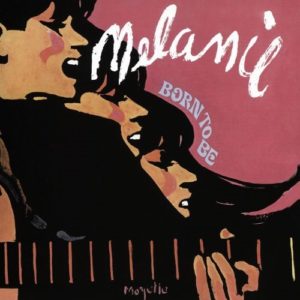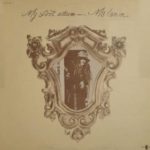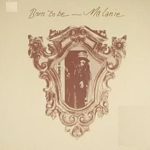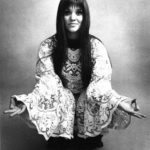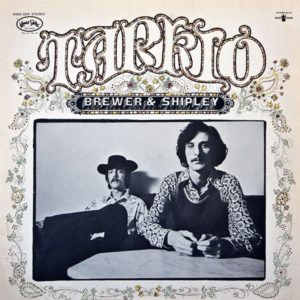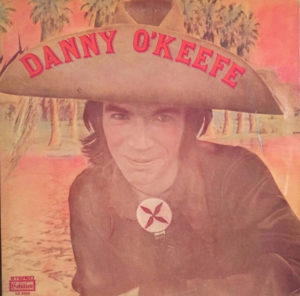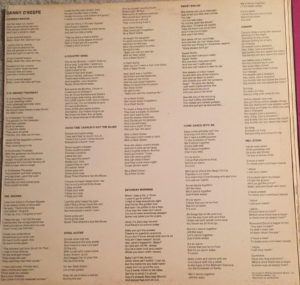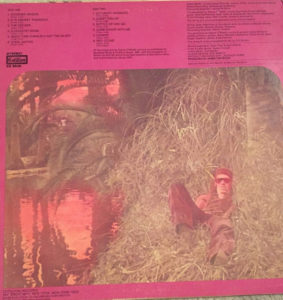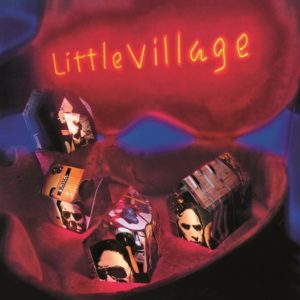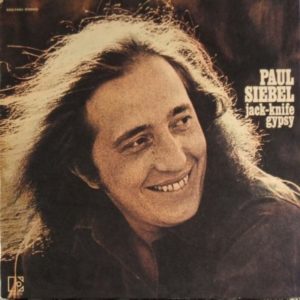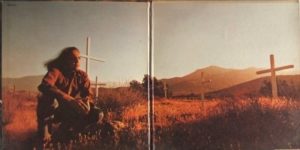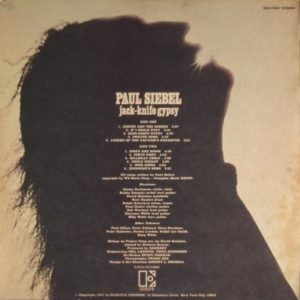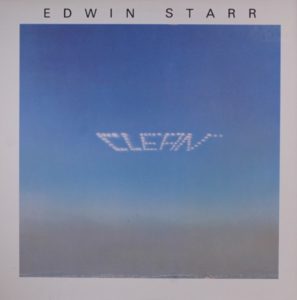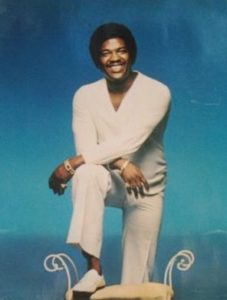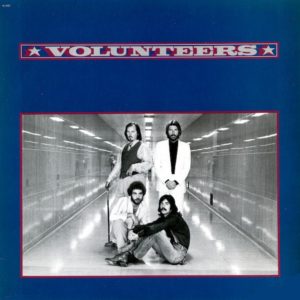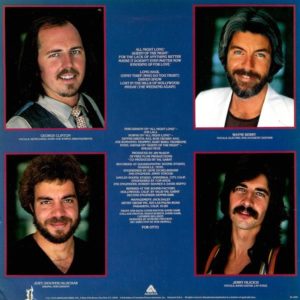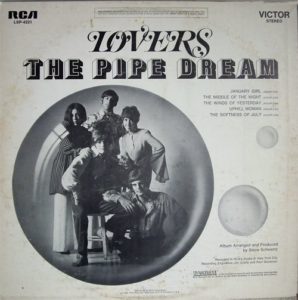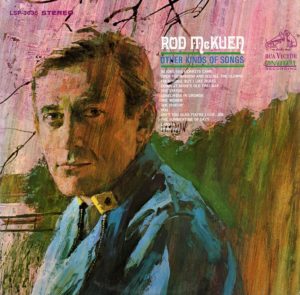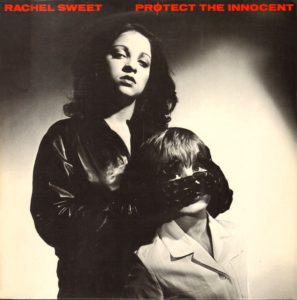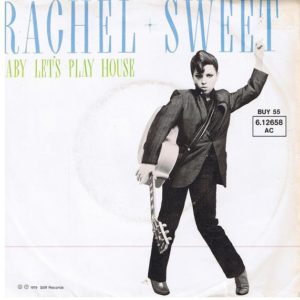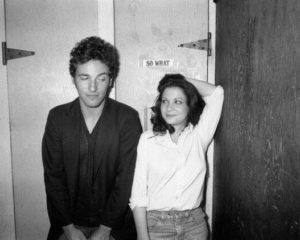… or '"My First Album" (1970).
Apparently, "following Melanie's success at the Woodstock Festival in 1969 Buddha repackaged and reissued the album as My First Album". https://en.wikipedia.org/wiki/Born_to_Be_(album)
Most sources seem to date "My First Album" as 1969 though the copyright on my copy is 1970.
Melanie released two albums in the two years after her debut, "Affectionately Melanie" (aka "Melanie") in December 1969 which did okay (US # 196) and "Candles in the Rain" in September 1970 which was a wordlwide hit (US #17, UK #5, Australia #2, Canada #5, Norway #20, Germany #16).
It could be, then, that "Born to Be" was repackaged as "My First Album" to cash in on that.
Either way sounds reasonable. A record label is never going to miss an opportunity to exploit, errrr promote, its talent.
Check out my other comments for biographical detail on Melanie but, in short, Melanie Safka was born in 1947, in Queens, New York. She made her first public singing appearance at age 4 on the radio show Live Like A Millionaire performing "Gimme A Little Kiss".
"Born To Be" was Melanie's debut album released in 1968 on Buddah Records.
She then performed at Woodstock in 1969 (unfortunately, she was not featured in the movie as were several other artists) and was a surprise discovery.
She emerged as a force in the early 1970s singer-songwriter boom.
Most of the criticism of this album seems to be that Melanie is all over the place musically. I understand the criticism but I don't have a problem with that jumping of styles if it fits into a whole.
And it does.
Melanie is a vocalist though, apparently , her voice is "love it or leave it". I don't get that … doesn't that apply to a lot of singers? She has a husky voice with plenty of vibrato but .. so?
As a vocalist she is an interpreter. She interprets other peoples work (she loves a good cover) but she also writes (the majority of) her own material. But in some ways her own material is an interpretation (re-write) of music she loves, and she loves more than one style..
This is how she can genre hop without any jarring musical schizophrenia.
Melanie is usually compared to Joni Mitchell, Joan Baez and Judy Collins and there is some of them here. They are all products of the 60s folk and coffee house movements. But, they are (and this is not criticism of any of them) more singular and focused on song writing. Melanie's musical brush is a lot broader and she is in some ways more experimental, or, willing to take chances on all sorts of song styles. Perhaps she is akin to Buffy Sainte Marie or Laura Nyro with Barbara Streisand, Judy Garland and Shirley Temple thrown in for eccentricity.
There is smoky Parisian (a la Edith Piaf), kid musings, folk, protest, pop, rock, vocal operatics all over the album.
Though there are touches of her future musical fame (as an innocent hippy songstress) this is not a sunshine flower child Melanie harvesting organic vegetables in a field but a world weary (at age 21) songstress in a big city smoke-filled bistro, cafe or coffee house..
The songs are solid and the covers are both obvious (but good, "Mr Tamborine Man) and playfully left of field ("Christopher Robin")
The album could be described as diverse or uneven depending on your perspective, but Melanie was clearly trying out various styles of music she likes and having audible fun doing it.
All songs written by Melanie Safka, except where noted.
Tracks (best in italics)
Side One
- In The Hour – a sad song with some nice accordion and a French feel, ala Edith Piaf.
- I'm Back In Town – musical theatre and quite effective (but then again, I like musical theatre …well, on record)
- Bobo's Party – a lot of vocal gymnastics with a bit of drama and some darkness.
- Mr. Tambourine Man – (Bob Dylan) – The great Bob Dylan song though the Byrds are most associated with it. With his they created folk rock and the song went to #1 in the US and UK (1965). Melanie slows it down and takes the Dylan original in a different direction and mood from The Byrds cover. Wonderful..
- https://en.wikipedia.org/wiki/Mr._Tambourine_Man
- Momma, Momma – daughter angst with husky vocal opera. The narrator questions the mothers rearing of her in the modern world.
Side Two
- I Really Loved Harold – the narrator is searching for heaven on earth, inall the wrong places. Some great, sharp and perhaps funny lyrics.
- Animal Crackers – pleasant and funny (and perhaps a little cynical) with overtones of "Sugar Sugar" (which came out in 1969) by the Archies.
- Christopher Robin Is Saying His Prayers – (A.A. Milne-H. Fraser Simpson) – Christopher Robin is a character created by A. A. Milne and appears in Milne's Winnie the Pooh stories. British musical theatre composer Harold Fraser-Simpson was known for his many settings of children's verse by A. A. Milne and others. This is engaging children's song done in a child's voice (that Melanie was to do again on other tunes)
- Close To It All – a lot of rhymes and repeated words. Melanie loves to do this.
- Merry Christmas – a nice haunting cover of "I Wish You a Merry Christmas" introduced by the beginning of "Silent Night". The old given a new leaf much like Simon and Garfunkel had done on "Scarborough Fair/Canticle" (1966)
And …
Pretty amazing in parts and solid all over … I'm keeping it.
Chart Action
Nothing in the English speaking world (in its original or repackaged release).
"Bo Bo's Party" became a #12 single in France (some sources say #1). Melanie's first chart success was in Europe. "Bobo's Party" was a hit in France and "Beautiful People" was a hit in the France and The Netherlands. She didn't become well known here until her appearance at Woodstock in August 1969.
Sounds
In The Hour
Clip
https://www.youtube.com/watch?v=KiAonMUpegg
Bobo's Party
Clip
https://www.youtube.com/watch?v=r07HBCdnSLQ
Mr. Tambourine Man
mp3 attached
Momma, Momma
Clip
https://www.youtube.com/watch?v=tm9SO0HDZPY
I Really Loved Harold
Live recently
https://www.youtube.com/watch?v=UNRI14JURnE
Animal Crackers
Clip
https://www.youtube.com/watch?v=qlSAannt_eY
Close To It All
Live
https://www.youtube.com/watch?v=Gq1arHIQbP0
Others
https://www.youtube.com/watch?v=iLeFevvAjYM
doing Phil Ochs
https://www.youtube.com/watch?v=MzECo5YnMDM
with Johnny Cash
https://www.youtube.com/watch?v=xqDmc1MTBKo
Review
http://www.allmusic.com/album/born-to-be-mw0000235287
https://en.wikipedia.org/wiki/Born_to_Be_(album)
https://www.melaniesafkarecordings.uk/Albums/borntobe.htm
Bio
http://www.allmusic.com/artist/melanie-mn0000409670
http://en.wikipedia.org/wiki/Melanie_Safka
Website
http://www.melaniesafka.com/home
http://freespace.virgin.net/robert_ian.smith/Melanie.htm
http://melaniemusicsociety.tripod.com/Mercurio/Mercurio.html
Trivia
- Credits: Roger Kellaway – Arranger, Melanie – Guitar, Vocals, (her husband) Peter Schekeryk – Producer.

